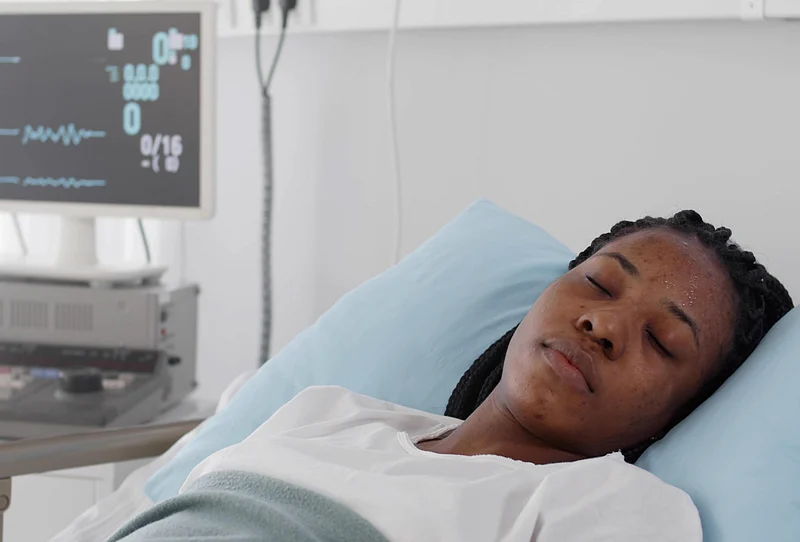Manténgase sano!

- Cara Murez
- Posted January 12, 2022
Medicaid Rules May Affect Americans' Cancer Survival
The chance of someone who is covered by Medicaid surviving cancer may depend in part on where they live, a new analysis finds.
In states that had lower Medicaid income eligibility limits, cancer survival rates were worse for cancers both in early and late stages compared to states with higher Medicaid income eligibility limits, American Cancer Society researchers discovered.
"Our findings that lower historic state Medicaid income eligibility limits were associated with worse long-term survival within stage suggest that increasing Medicaid income eligibility could be an important policy lever for improving survival after cancer diagnosis," said study author Jingxuan Zhao, a senior associate scientist at the cancer society.
For the study, the researchers looked at 1.4 million U.S. adults who were newly diagnosed with 19 common cancers between 2010 and 2013 in the National Cancer Database, and followed them for up to eight years.
In the study, states' Medicaid income eligibility limits were categorized as ≤50%, 51% to 137%, and ≥138% of the federal poverty level (FPL). Among patients with newly diagnosed cancer (aged 18 to 64 years), patients living in states with lower Medicaid income eligibility limits had worse survival for most cancers compared with those living in states with high Medicaid income eligibility limits (≥138% FPL), according to the report.
The findings indicate that Medicaid policies are critical to survival after cancer diagnosis.
The reasons for the association between state Medicaid income eligibility limits and stage-specific survival could be that having health insurance may improve access to timely care and complete treatment, the authors noted in a cancer society news release.
For cancers that have effective treatments, access to that treatment is strongly associated with survival. Access to advanced therapies, such as immunotherapy and targeted therapy, may also contribute to survival, according to the cancer society.
Another reason for the disparity may be that having health insurance is also associated with monitoring the patient after survival and specialized health care during that time, also known as survivorship care.
The findings were published online Jan. 7 in the journal JCO: Oncology Practice.
More information
The U.S. Centers for Disease Control and Prevention has more information on and resources for cancer.
SOURCE: American Cancer Society, news release, Jan. 7, 2022





